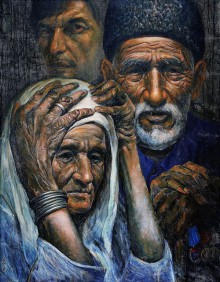This autumn the University of Cambridge is going to start teaching the language and culture of the Crimean Tatar people. It is stated on the Facebook page of the Cambridge Ukrainian Studies. According to the information available today, the familiarization with the Crimean Tatar culture will take place in the form of master classes conducted by Rory Finnin, Head of the Department of Slavonic Studies at Cambridge University, and Vsevolod Samokhvalov, researcher at Cambridge Forum on Central Asia; the project is financially endorsed by CEELBAS. This is the first time a British university offers the students and post-graduates a curriculum to learn about the Crimean Tatars in a systematized way.
The Crimean Tatar language belongs to Kipchak-Nogay group of Turkic languages. It is spoken mainly on the Crimean peninsula, as well as in Uzbekistan and Turkey. The contemporary writing is based on the Latin alphabet, but Cyrillic is also used.
The oldest written monument of the Crimean Tatar language belong to the 17th (The March of Islam Giray to Poland by Gian Muhammad in 1648-49) and 18th (The Seven planets by Seyed Mohammad Reza; The Ocean of Evidence) centuries, and demonstrate the influence of the Ottoman literary language of the time.
Heterogeneity of Crimean literary language persisted until the 1920s. In 1928 a linguistic conference was held in Crimea which created a new literary language based on the middle dialect (this dialect was chosen because it has the largest base of speakers and is equally understood by the speakers of two other dialects). And this second literary language, the codification of which began in 1920s, is still in general use.







